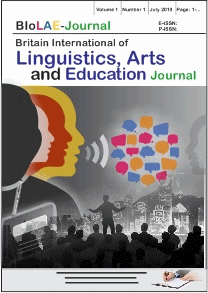Evaluation of Implementation of Blanded Learning Implementation in Universitas Negeri Medan
Abstract
The purpose of this study is to obtain the level of achievement of the evaluation of the implementation of blended learning at Universitas Negeri Medan in terms of the evaluation components, namely system assessment, program planning, program implementation, program improvement, and program certification. Also, get a description of the application of Blended Learning at Universitas Negeri Medan. The sample in this study were representatives of lecturers and students from faculties who carry out learning using the Blended Learning model at Universitas Negeri Medan. The results of the study show that for the evaluation component of the system assessment, it was obtained an average percentage of achievement of 84.03% so that it was included in the good achievement category. For the evaluation component of the Planning program, it is obtained an average percentage of achievements of 86.9% so that it is included in the good achievement category. For the Program Implementation evaluation component, the percentage of achievement was an average of 87.3%, so that it was included in the good achievement category. For the evaluation component, the Improvement Program obtained an average percentage of achievement of 91.3% so that it was included in the very good achievement category. The evaluation component of the Program Certification obtained an average percentage of achievement of 88% so that it was included in the good achievement category. The implementation of Blended Learning, in general, went well, from the sample taken from the lecturer representatives of each faculty it was found that there had been an adjustment in the RPS with the KKNI assignments in the implementation of blended learning. The most common obstacle is the wifi facilities that have not been maximized. Suggestions are given to make a standard policy for uniformity in the implementation of blended learning at Universitas Negeri Medan.



_.gif)
















_.gif)












